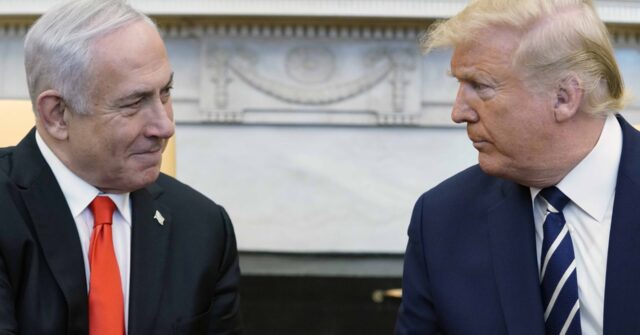Israeli Prime Minister Benjamin Netanyahu’s recent statements regarding Israel’s military objectives provide a glimpse into the complex geopolitical landscape of the Middle East following the conflict that escalated on October 7. In a conversation with U.S. President-elect Donald Trump, Netanyahu emphasized the necessity of achieving “complete victory” for Israel, a term he did not define explicitly. However, he did outline two focal points: the return of all remaining hostages held by Hamas in Gaza and the prevention of Hezbollah’s rearmament in Lebanon. While Netanyahu did not bring up potential military strikes on Iran’s nuclear facilities, Israel’s military preparations illustrate a pressing concern regarding Iran’s influence and capabilities in the region, especially following recent successes in targeting Iranian air defenses in both Syria and Lebanon.
Netanyahu took a moment to reflect on the transformations across the Middle Eastern landscape, asserting that countries such as Syria, Lebanon, and Gaza have all changed fundamentally due to Israel’s military actions. He painted a picture of instability and ongoing security threats emanating from Iran and its proxies, underscoring Israel’s strategic response to these evolving dynamics. The Prime Minister also articulated Israel’s cautious yet assertive stance towards Syria, reminding that for decades, Syria has posed a significant threat to Israel, allowing attacks and facilitating Hezbollah’s armament. This historical context informs Israel’s current military strategy aimed at mitigating threats from Syria by targeting specific capabilities linked to the Assad regime and dismantling supply routes for Hezbollah’s armament.
Acknowledging the multifaceted challenges posed by Hezbollah, Netanyahu expressed Israel’s unwavering commitment to preventing the militia from rearming. His remarks were underscored by a recent statement from Hezbollah’s leadership that acknowledged the disruption of their military supply routes, which were heavily influenced by Israeli military campaigns. Netanyahu’s declarations serve as a warning to both Hezbollah and Iran, reaffirming Israel’s intention to take necessary actions to protect itself against potential aggressions. The Prime Minister’s resolve emphasizes the ongoing nature of the conflict, viewing it as a prolonged challenge that demands continuous military readiness and strategic engagement across various fronts.
The recent dialogues between Netanyahu and Trump have led to a thawing of their relationship, with both leaders discussing military strategies and the dire situation of hostages held by Hamas. Trump’s statements, hinting at severe repercussions for Hamas if hostages are not released by January 20, further underscore the escalating tensions in the region. The gravity of the hostages’ plight seems to be central to both Netanyahu’s and Trump’s military and diplomatic calculations, showcasing how domestic situations can heavily influence international relations and military strategies.
Current U.S. national security commentary, including statements from White House spokesman John Kirby, suggests that President Joe Biden may also consider military actions against Iran if the situation escalates further. This potential alignment of military action between Israel and a future U.S. administration reinforces the seriousness with which both countries view Iran’s nuclear ambitions and its support for regional militant proxies. The complexity and urgency of these discussions highlight the broader implications of military strategies in the region, which could lead to significant shifts not only in Israeli security policy but also in U.S. foreign policy toward Iran and its affiliates.
The ongoing conflict, the urgency surrounding hostages, and the dynamics involving Iran reflect a broader struggle for power and influence in the Middle East. As military actions escalate and diplomatic channels remain fraught with tension, the international community watches closely. The intricate interplay among the various state and non-state actors, combined with the potential for U.S. and Israeli military collaboration, suggests that the region remains in a precarious state, with the potential for further conflict looming on the horizon. Netanyahu’s statements serve not only as a call to action for his country but also as a reminder of the volatile geopolitical terrain that characterizes the current state of Middle Eastern affairs.

